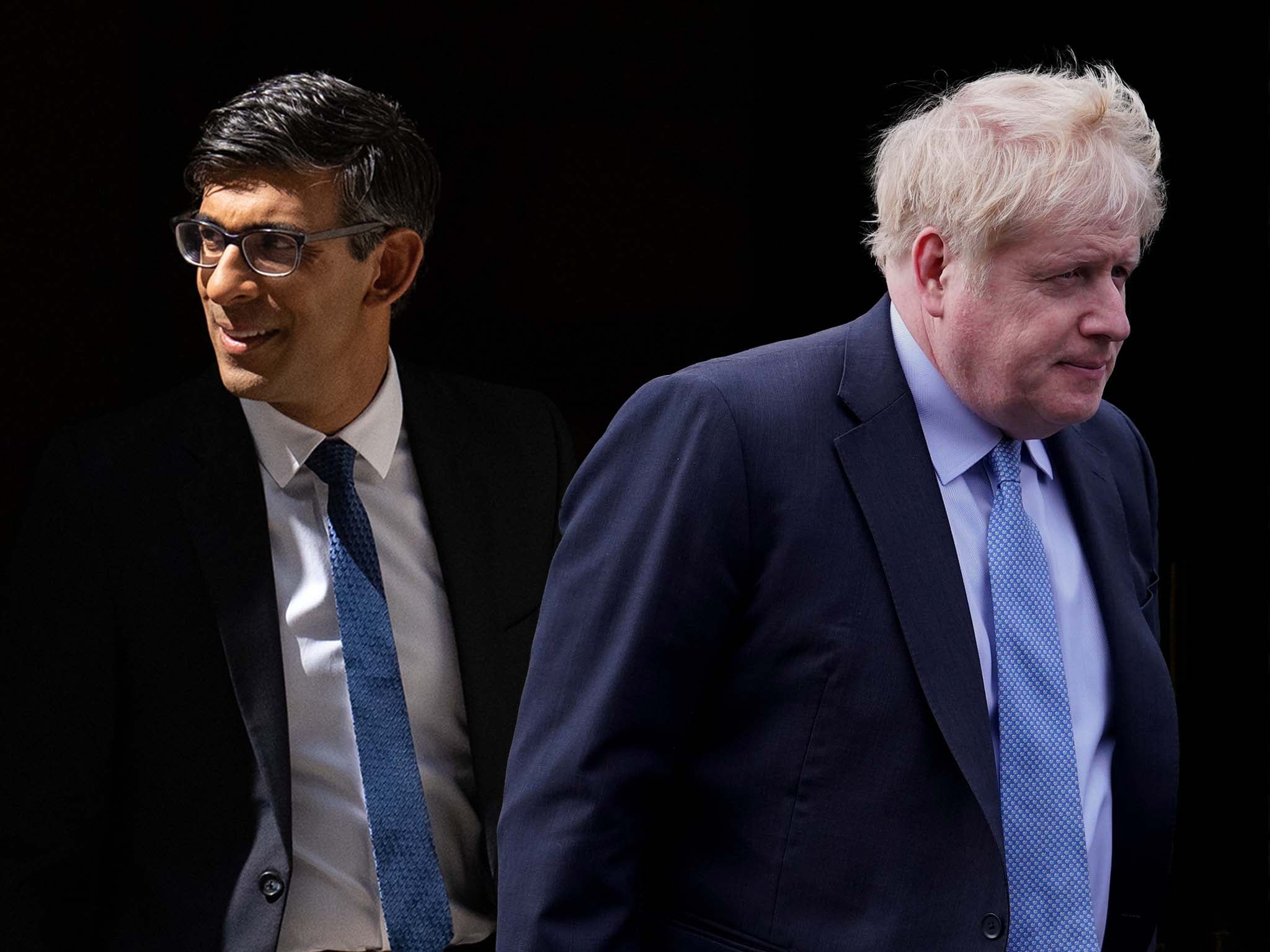Matt Hancock admits affair with aide damaged public trust in Covid rules
Ex-health secretary’s latest inquiry appearance reveals tensions between Rishi Sunak and Boris Johnson over second lockdown
Your support helps us to tell the story
From reproductive rights to climate change to Big Tech, The Independent is on the ground when the story is developing. Whether it's investigating the financials of Elon Musk's pro-Trump PAC or producing our latest documentary, 'The A Word', which shines a light on the American women fighting for reproductive rights, we know how important it is to parse out the facts from the messaging.
At such a critical moment in US history, we need reporters on the ground. Your donation allows us to keep sending journalists to speak to both sides of the story.
The Independent is trusted by Americans across the entire political spectrum. And unlike many other quality news outlets, we choose not to lock Americans out of our reporting and analysis with paywalls. We believe quality journalism should be available to everyone, paid for by those who can afford it.
Your support makes all the difference.Matt Hancock has admitted that his affair with top aide Gina Coladangelo during the pandemic damaged public confidence in complying with Covid rules – acknowledging his costly “failure” at the public inquiry.
The former health secretary was grilled on the “transgression” which forced him out of government in June 2021 after footage emerged of him kissing his adviser during a time of strict regulations.
Inquiry counsel Hugo Keith KC said it had caused “incredible offence and upset” and asked Mr Hancock if he thought it impacted the “public’s propensity to adhere to rules”.
Mr Hancock replied: “Well, what I’d say is that the lesson for the future is very clear. And it is important that those who make the rules abide by them, and I resigned in order to take accountability for my failure to do.”
The second day of the ex-cabinet minister’s testimony also revealed tensions between Rishi Sunak, Boris Johnson and Mr Hancock over a second lockdown.
Mr Hancock’s affair “failure” admission came as:
- Hancock suggested Sunak would have put “enormous pressure” on Johnson not to have a second lockdown
- He accused ex-SNP boss Nicola Sturgeon of communicating with the public in an “unhelpful and confusing” way
- The ex-health secretary claimed other regional leaders had “put politics ahead of public health”
- Hancock was warned in April 2020 about the need for a “focused effort” on testing in care homes
On the second day of Mr Hancock’s evidence session, Mr Keith said his resignation “must have been a reflection of the fact that you understood the importance of ... rule-breaking or guidance-breaking on public confidence in the public at large”.
Mr Hancock replied: “Yes.” The former health secretary had been pictured in CCTV footage embracing Ms Coladangelo, then an aide at the health department.
At the time, the country was in the middle of step two of the lockdown roadmap. People could not socialise indoors with anyone not in their household or support bubble, while strict social distancing was in place for workplace offices.

Then-chancellor Mr Sunak would have put “enormous pressure” on Mr Johnson not to have an autumn lockdown, Mr Hancock had suggested during a series of WhatsApp messages.
An exchange from October 2020 between Mr Hancock and cabinet secretary Simon Case showed how Mr Hancock was pressing for information from a meeting on 30 October that he claims he was “blocked” from attending.
It suggested that Mr Sunak – then chancellor – was in favour of tighter controls when it came to schools, rather than the closure of all shops.
Mr Hancock wrote: “When then? Rishi is in the room – contrary to the stupid rules – so the PM will be under enormous pressure to not do enough once again.”
Mr Case said Mr Sunak “has already resigned himself to the choice ahead” in terms of a lockdown, but had argued for tighter controls in schools rather than closing shops.

It emerged that Mr Hancock was warned in April 2020 about the need for a “focused effort" on testing people in care homes.
The ex-health secretary told the inquiry that there were only “difficult options”, as he discussed his controversial decision to discharge hospital patients to care homes.
He added: “I fear that if we had left those patients in hospital – those who were medically fit to discharge – there is a high likelihood that more would have caught Covid and the problem could have been bigger.”
Mr Hancock accused then-SNP leader and Scottish first minister Nicola Sturgeon of communicating with the public “in a way that was unhelpful and confusing” during the Covid crisis.
“Sometimes, [Ms Sturgeon] would leave a meeting and begin communication of a decision, for instance, sooner than agreed,” he said. He also claimed she sometimes put “some kind of spin” on what was essentially the same decision by UK and Scottish governments.
Responding, a spokesperson for Ms Sturgeon said: “There is not a scrap of evidence for Matt Hancock’s claims … Nicola communicated openly and frankly with the people of Scotland on a daily basis.”
Mr Hancock also told the inquiry that he found local political leaders in Liverpool easier to deal with than those in Manchester – in an apparent swipe at regional mayor Andy Burnham.
He praised Liverpool’s former mayor, but said in some other cases with regional leaders he thought they gave “actively unhelpful input that I felt put politics ahead of public health”.
Asked whether he was referring to Manchester, the former health secretary said: “Yes.” Responding to the apparent criticism, a spokesperson for Mr Burnham said: “That may be Mr Hancock’s opinion, but he’s wrong.”

Join our commenting forum
Join thought-provoking conversations, follow other Independent readers and see their replies
Comments